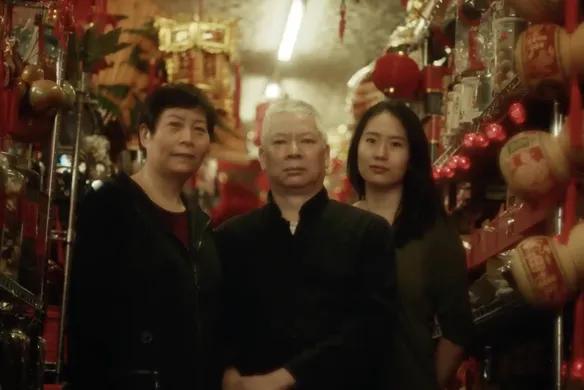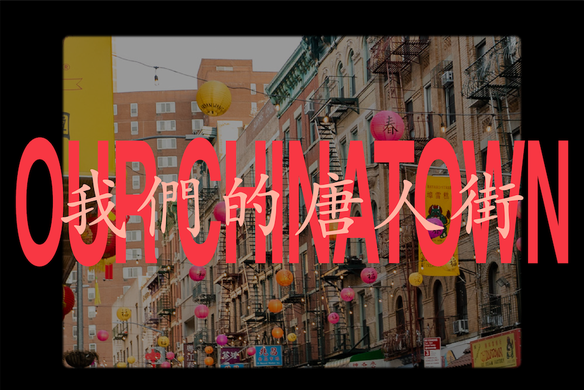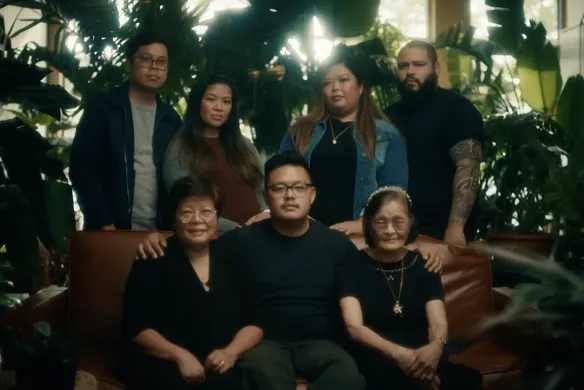Table of contents
At Square, we believe that everyone should be able to participate in the economy, on their own terms. To give voice to the AAPI entrepreneur experience, we worked with production partner Even/Odd and filmmaker Red Gaskell to unearth stories of AAPI-owned businesses in the New York City area. We also conducted interviews with Asian business owners across the country to highlight the diversity within the AAPI business community.
Explore each film and short story below to learn more about these powerful entrepreneurs and the resilience enabling each person to open doors — and themselves — to new beginnings.
What it means to be an Asian-American business owner today
There are endless layers to the Asian-American entrepreneurial experience. The Asian-American Pacific Islander (AAPI) population has over 40 subgroups, and the US. Census expects that it will more than double by 2060. The entrepreneurial spirit is alive and well within the AAPI community — according to data from the Small Business Association (SBA), one out of every ten businesses in the U.S. is Asian-owned, making up over 555,200 businesses.
There is no single story that captures the diversity, vibrancy, and potential of Asian-American business owners. Many AAPI business owners have lived in the U.S. their whole lives, or their families have been here for generations, while others are newer immigrants who come to the U.S. in search of opportunity. In some cases, they start businesses because it’s the best and only option forward.
According to Alice Liu, the second-generation owner of Grand Tea & Imports, a tea and spiritual goods store located in New York’s historic Chinatown, entrepreneurship for her parents’ generation takes on a different meaning. “It’s their only way to sustain themselves in a society where they would otherwise not be able to get a job,” she explains. “So a lot of them end up having to create their own jobs by opening their small business in order to sustain a livelihood for their families.”
Many AAPI-identified business owners go down the same path as Liu’s parents, and have not only reached the dream they set out on, but are also rethinking what that dream should even look like — for their families, for their communities, and the legacies they leave behind.
Today, these entrepreneurs’ experiences have changed, marred not only by the economic impact of COVID-19, but by discrimination, xenophobia, and violence. Stop AAPI Hate reports that there were 6,603 hate incidents recorded by their center from March 2020 to 2021. Hate crimes against Asian-Americans rose by 149% in 2020 across 16 cities, according to a report from the Center for the Study of Hate and Extremism at California State University, San Bernardino.
To give light to these diverse experiences, learn about eight Asian-owned businesses and how their owners are navigating entrepreneurship today.
8 Asian business owners share their stories of entrepreneurship
- Redefining what it looks like to raise children with dual identities
- Balancing a family business with personal aspirations
- Learning to heal by growing a new business
- Building a business that creates representation for a community
- A family tragedy leads to a new sense of purpose
- Honoring a diverse community
- Finding what makes her special
- Growing a business and building a legacy
Redefining what it can look like to raise children with dual identities
Business: Modi Toys
Co-founders: Avani Modi Sarkar and Viral Modi
Avani Modi Sarkar and her brother, Viral, became first-time parents within a week of each other. “Parenthood really makes you look at life in a completely different perspective,” Sarkar says. “The things we took for granted growing up came to the forefront. As parents we asked ourselves, ‘how much of our culture is important for us to retain?’”
She didn’t think about her dual identity of being Indian-American and Indian until having children. Growing up in New Jersey, Sarkar was immersed in her Indian culture and spoke her mother tongue at home. But as new parents, she and her brother talked about how different their kids’ lives would be — not better or worse, just different. They asked each other, “What if there was a way to introduce our kids to our culture, our faith, in a really fun, subtle, and accessible way?”
Viral went on Google and Amazon, looking for a plush version of Ganesh, the Indian deity that is the remover of obstacles, the god of new beginnings. But it didn’t exist. “The only reason we went forward with this idea is because we couldn’t find what we were looking for,” explains Sarkar. So they launched Modi Toys, a toy company that creates plush toys designed after Hindu deities that play a prayer when squeezed.
Their first batch sold out immediately. Sarkar and her brother tapped into a huge demand of people around the world — both kids and adults — looking to bring more meaning into their lives.
Sarkar’s Indian identity and immigrant background laid the groundwork for her entrepreneurial thinking. And her parents’ hard work lit the way. “My brother and I don’t come from a toy manufacturing background,” she explains. “My parents owned a convenience store. I think the fact that we had both of our parents take on this entrepreneurship journey themselves, and they figured it out as they were going along, that subconsciously planted the seeds,” Sarkar says. “It gave us the confidence that look, if they can do it with much less resources, we can obviously do it too.”
Read more about how Sarkar turned her side hustle into a successful international toy company.
Balancing a family business with personal aspirations
Business: Grand Tea & Imports
Owners: The Liu family
Alice Liu took over Grand Tea & Imports from her family back in 2020. Her father, Zhong Ming Liu, nicknamed “Tea-fucious” because of his passion for tea, started the business as a way to connect his children to their Chinese heritage — and their community to the meaning tea can have for people. “We were born and raised in America, and so he wanted to make sure that we had that cultural heritage and were rooted in our cultural identity,” explains Liu. “And he found tea and cultural goods, Buddhist goods, ancestral goods, a very good business to also instill these values into us.”
Chinatown is both the backdrop and the center stage for the Liu family’s upbringing and entrepreneurial journey. “Everyone around me looked like me, no one ever made fun of my food, no one every made fun of the way I looked,” says Liu. But Chinatown takes on a different meaning for her parents. “For my parents, it’s so much more important. For them, it’s their way of living in America without completely giving away all of themselves.”
The New York neighborhood is also an indelible part of the Chinese immigrant experience as many people started businesses because there weren’t other options when they immigrated to the U.S. “It’s their only way to sustain themselves in a community or in a society where they would otherwise not be able to get a job,” Liu explains. “Entrepreneurship in Chinatown is more out of necessity in making a livelihood.”
Taking over the family business is a positive but complex step for Liu since it’s different than how she imagined her life going. “I was told that the definition of success was to get that white collar job. And so I am still trying to make peace or find a balance as to where my personal career and my dreams will come into play and how it could be balanced with my family’s business.”
As Liu figures out how to connect the kind of life she wants to live with Grand Tea & Imports, she also knows it’s something she will make work. “It’s my parent’s retirement plan. They say they want to be able to raise grandchildren and babysit grandchildren while watching the store. I’m gonna make sure it happens.”
Learning to heal by growing a new business
Business: Terrace Plant Shop
Owner: Peter Dario
Filipino-American Terrace Plant Shop owner and entrepreneur Peter Dario credits his mom with his entrepreneurial spirit while watching her run a restaurant for ten years. “I was immersed in business. I was immersed with people who locally just wanted to try our food — her homemade food — and people loved it. And I wanted that same feeling … building that community with people all around us, I think it’s perfect, I think it’s beautiful, and now that I opened up Terrace, I can finally have that same effect with the community,” says Dario.
“For me and my family, it’s been one hell of a year.” he says. “We lost my father to COVID-19 in March, 2020, and my lolo, my grandpa, three days later.” After their passings, without even realizing it, he and his family started buying tons of plants, filling the house and surrounding themselves with greenery and new life.
Dario’s mom grew up on a farm in the Philippines. When the family came to America, he and his sisters were raised surrounded by greenery in the backyard and all through the house. This, he says, not only helped them heal, it led to him opening the plant shop. “Our shop is a symbol for everyone that no matter how hard life gets, we must keep pushing, we must keep growing.”
Read more about how Dario started Terrace Plant Shop as a way to heal his community.
Building a business that creates representation for a community
Business: Nguyen Coffee Supply
Owner: Sahra Nguyen
“I’m a first generation, Vietnamese American, daughter of refugees, born and raised in Boston, Massachusetts. When my parents were around 18 years old, they both escaped Vietnam by boat after the war ended,” says Nguyen Coffee Supply owner Sahra Nguyen. “It took them each several attempts before they were successful, and they spent about two months on the boat.” A few years after landing in a refugee camp in Hong Kong, they were both sponsored to come to the U.S. where they met each other.
While some of the challenges to starting a business weren’t rooted in her identity, Nguyen says that the lack of resources, intergenerational wealth, and knowledge were contributing factors. Growing up as a Vietnamese-American in the late 80s and 90s, Nguyen often felt invisible due to lack of representation. She says she was shocked to find out that Vietnam was the second largest producer of coffee in the world. That knowledge was part of the inspiration for her business, to bring transparency, representation, and visibility to Vietnam.
For Nguyen, it is about a lot more than making coffee. “Specialty coffee isn’t just something we drink; specialty coffee is a collective investment from people all along the supply chain to improve lives and build a more sustainable world together,” says Nguyen.
When it comes to local support this year, she has seen New Yorkers band together after incidents of anti-Asian hate. “It’s been incredible to see the power of community rise up and come together in the face of hate,” says Nguyen. “People have started grassroots campaigns, fundraisers, and unintentional non-profits to serve the community. It’s a lot of micro to macro organizing efforts that all add up and show the world that we are strong and we are persevering, together.”
A family tragedy leads to a new sense of purpose
Business: Kam Hung Coffee Shop and Tonii’s Fresh Rice Noodle
Owner: The Yee family
Liz Yee started working at her parents’ New York Chinatown sponge cake bakery Kam Hing Coffee Shop when she was just 14 years old. Today, she runs the bakery and also opened Tonii’s Fresh Rice Noodle, a Hong Kong style comfort food café serving cheung-fun, or rice noodle rolls.
Yee’s father, John, immigrated to the U.S. from Hong Kong as a young child and almost immediately called Chinatown home. Her parents built Kam Hing Coffee Shop to secure the family’s future, and wanted their children to go off and fulfill their own dreams. But, says Yee, a family tragedy brought her back.
In 2009, Yee’s brother Tony and his girlfriend were killed in a fire. Tony, who was almost two decades Yee’s senior, was a second father figure to her. The loss was devastating and caused the whole family to rethink their futures.
“He had this business in his mind. It was his to take over from my parents,” Yee says. “Because of him, all of us changed our future careers into the sponge cake store.” She added, “I realized how important my family is and how I wanted to be around them every day. Kam Hing and Tonii’s is my future, I want to keep it in the family.”
Yee has grown up in the shop, and sees how important her family’s businesses are to the Chinatown community, particularly since the pandemic made the future so uncertain.
“The customers I have at Kam Hing, they’re based within the community… aunts and uncles, grandpas and grandmas. You’re not blood-related, but you still talk to each other like you’re from the same village basically,” she explains.
“You got a lot of the seniors coming in because they recognize our name from so many years ago when they were here in Chinatown working in the factories,” John says. “As time goes by, they moved out, they had kids. But they still remember us and remember the taste of the cake and they still come back and buy from us.”
Yee says that she thinks about her family’s legacy and the legacy of businesses that have been the backbone of Chinatown.
“It’s very important for businesses to stay that have been here for so long… the fact that they’ve been around for 30, 40 years, you can still see that. If they didn’t renovate — most stores don’t renovate — you can see the old structure of the building… it’s something beautiful to be a part of.”
“If the next generation takes over the business that their parents started, you would still have a Chinatown,” says her father, John. “If you don’t take over it and then you lose the storefront, what comes next?”
Read more about how the Yee family’s relationship with Chinatown has deepened over the past year.
Honoring a diverse community
Business: MaMang
Owner: Tony Vu
For Tony Vu, owner of MaMang in Flint, Michigan, community has always been close to his heart. Vu is a first generation refugee. His parents came to the United States from Vietnam, where his dad served as a flight surgeon with the South Vietnamese Air Force. When they arrived they had very little and were faced with having to rebuild their lives, an experience many immigrants can relate to.
It was because of the support and kindness of their community that they were able to create a new life for themselves and their family.
“We all come from different backgrounds and have our own stories to tell. Most of us are first or second generation and when you see us in our businesses, we are proudly participating in the American Dream,” he says. “Some of us are refugees whose families left war-torn countries, some are immigrants seeking to build a better life, and some of us are children of these families whose only identity is growing up in America as a child. The food we serve, music we play, and art we create are all gifts from our families that contribute to the great, diverse, culture of America as a whole. Food is a great gateway, but getting to know us and each other as individuals sows the foundation of a strong community.”
This influence and appreciation of community has always stayed with Vu, who started MaMang after being inspired on a trip to Vietnam, returning with the goal of building community through food.
“The Flint community is intertwined into MaMang in so many ways. We’re here to serve everyone and, starting off, very few people knew what Vietnamese food was,” says TonyVu. “Nowadays, our customers genuinely seek our pho out as soul food. It brings joy to people’s lives and we’re very proud to all share in these experiences.“
Learn more about Tony and other Flint business owners in our short film, Forged in Flint.
Finding what makes her special
Business: Nong’s Khao Man Gai
Owner: Nong Poonsukwattana
Nong Poonsukwattana was born and raised in Bangkok, Thailand. She learned to cook from her mother, who worked long hours in a restaurant to make enough money to send her and her sister to university.
She left Thailand in 2003, following a paramour to Portland, Oregon. Their love wouldn’t last, however, and Poonsukwattana needed to find a way to take care of herself. She applied to jobs at convenience stores and big box retailers, only to be rejected.
“I spoke poor English. But I realized what made me unique: I can cook something different and use that to my advantage,” Poonsukwattana recalls.
She worked in kitchens, eventually landing at a Thai restaurant that was beloved by critics and featured on the covers of food magazines. There, she honed her skills, gaining enough confidence to pitch her khao man gai, or Thai chicken and rice. “I wanted to cook something that wasn’t on every Thai restaurant menu. That gamble paid off because the dish got noticed,” she says.
With $800, she purchased a cart to start her business, Nong’s Khao Man Gai. But she realized she had a lot to learn about marketing and operations. So in between services, she taught herself how to use Twitter to promote her cart, and asked other cart owners for their tips on growing a business.
More than a decade later, Poonsukwattana has two locations and a bottled sauce that she ships nationally. On top of that, she is a media darling, having been featured in the likes of The Oregonian, Eater, Vice, Bon Appetit, and many more.
It’s a far cry from when she first came to the country with $70 in her pocket, constantly being reminded that she was a foreigner, and treated as less than because of her thick accent.
“Sadly, I accepted that it’s part of American culture. By the same token, I don’t let it put me down or make me angry. I use it to drive myself to be better and do good things for other people,” she says.
That’s why she offers her team health insurance, and supports other immigrants who are trying to break into the industry. It’s also why she takes every opportunity to tell her story, through videos, interviews, and a planned podcast.
“I try to connect to other people and with limited language,” she says. “I do it for me, and I do it for other people who are in the same boat. I hope I inspire you guys to get going.”
Growing a business and building a legacy
Business: 47 Division St. Trading
Owner: Jeff Li
Jeff Li has been “volunteering” at his parents’ business, 47 Division St. Trading in New York’s Chinatown, since the age of five. Now 28, Li has watched his parents, who immigrated to New York City in 1985 from China’s Guangdong province, balance running a business and supporting a family, all while navigating a new country and a difficult language barrier that attracted adversaries looking to take advantage of his family. He also watched his father persist against the odds.
“Chinatown is the epitome of the American Dream; it’s a cultural enclave, a ghetto in its own rights, and yet it’s still one of the last remaining areas that people can come and make it if they’re willing to grind,” reflects Li. “That’s kind of the unspoken relationship with Chinatown and New York and America, you know, as minorities to America. We’re just here to survive. We’re trying to make a foothold for our kids. That’s what it was like growing up in Chinatown.”
The struggles and hardships Li witnessed led to a tenacious independence and a deep understanding of his parents’ goal to provide him and his siblings with a better life, and his motivation to keep that dream alive for his parents.
Li had just returned home to New York City from active duty in the military when the pandemic hit. Knowing all of the uncertainty and rapidly-changing regulations that his parents’ business would be faced with over the coming months, he stepped in to take an official position, solidifying it as a family legacy business.
“I was very fortunate for my parents, even though they were removed because they were working so much, that I still at the end of the day knew that they were doing it for us,” says Li. “So that’s kind of like the lighthouse in the rough seas guiding us the right way.”
Read more about Li’s family business and what his neighborhood means to him.
![]()








